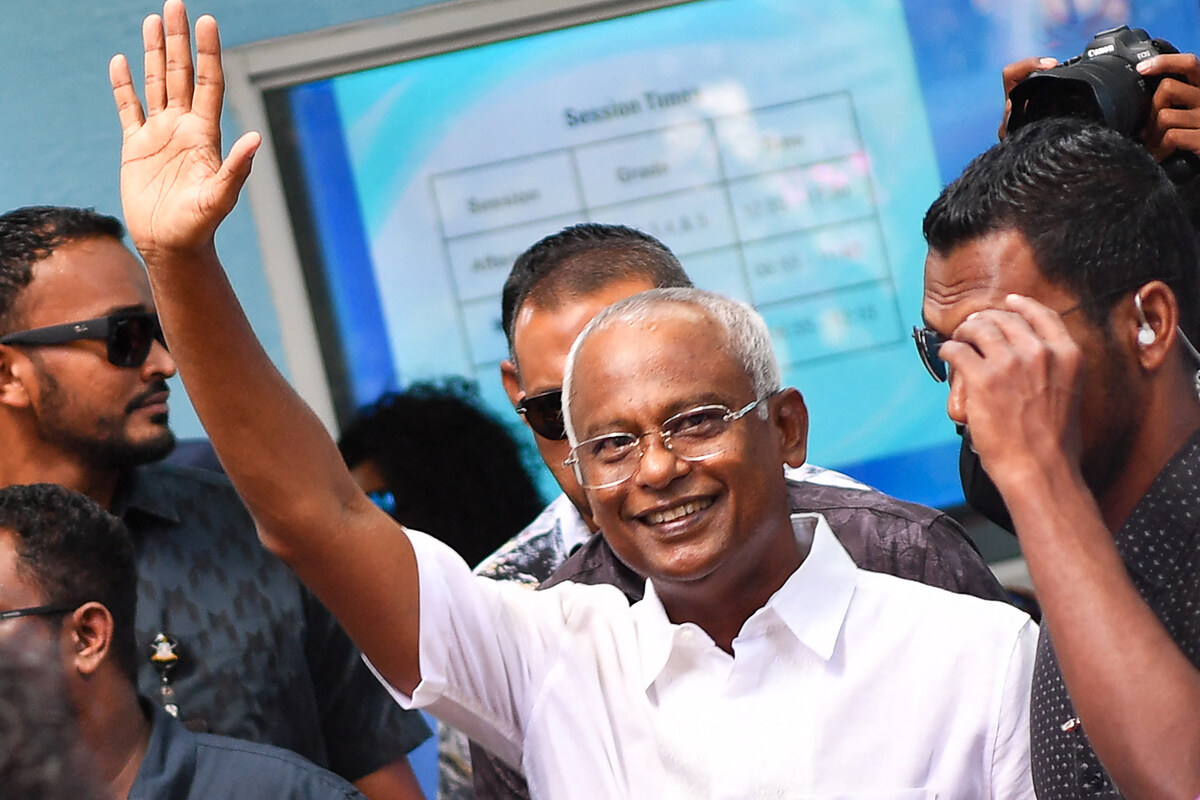
Maldives President Ibrahim Mohamed Solih was a career politician unexpectedly propelled to the presidency after other contenders were jailed or exiled.
The 61-year-old on Saturday faces an uphill battle for re-election in the archipelago, best known for its pristine beaches and celebrity tourists.
Solih held no important office before his surprise win in 2018 over Abdulla Yameen, which halted a slide toward autocracy that had isolated the Maldives from its traditional friends.
He was drafted at the last minute to replace his mentor, Mohamed Nasheed, himself a former president, who was disqualified after a conviction on spurious terrorism charges.
Solih quashed Nasheed’s conviction and those of several other politicians viewed as potential threats by Yameen, who is now serving an 11-year sentence for corruption.
But the two erstwhile allies fell out after Solih vetoed Nasheed’s push for political reforms that would have devolved powers to him in parliament.
After Nasheed was wounded in a 2021 motorcycle bomb attack blamed on Islamist extremists, his supporters accused Solih of not doing enough to apprehend those responsible.
The tensions between them came to a head in January when both sought the MDP’s nomination for the September 9 presidential election and Solih won.
Nasheed accused him of rigging the ballot — a charge denied by Solih — and quit the party.
The release of political prisoners at the start of his tenure prompted hopes that Solih would liberalize a country that only introduced multi-party democracy in 2008.
But his administration has been accused of stifling dissent and restricting the press, with a law passed last year compelling journalists to name their sources.
“The space for freedom of the media in the Maldives has sharply deteriorated,” Human Rights Watch (HRW) said in May.
Solih was a distant second in the presidential election’s first round earlier in September, winning 39 percent of the vote while frontrunner Mohamed Muizzu got 46 percent.
The two men will compete in a run-off Saturday with Muizzu, a member of Yameen’s party, campaigning on reducing the archipelago’s reliance on traditional benefactor India.
Restoring ties
Solih moved to restore the Maldives’ traditional diplomatic posture and its friendly relations with India after taking office.
He rejoined the Commonwealth after Yameen withdrew in 2016 to escape sanction over the deteriorating human rights situation during his tenure.
Solih was also critical of Yameen’s decision to borrow heavily from China for large infrastructure projects and his sidelining of India.
After winning, Solih publicly declared that Chinese loans were too big a burden on his tiny nation.
But India’s outsized political and economic power in the Maldives has long been a source of dispute.
Yameen’s party and other activist groups have regularly staged street protests demanding a reduction of India’s influence in the majority Muslim nation.
Follow our socials Whatsapp, Facebook, Instagram, Twitter, and Google News.








